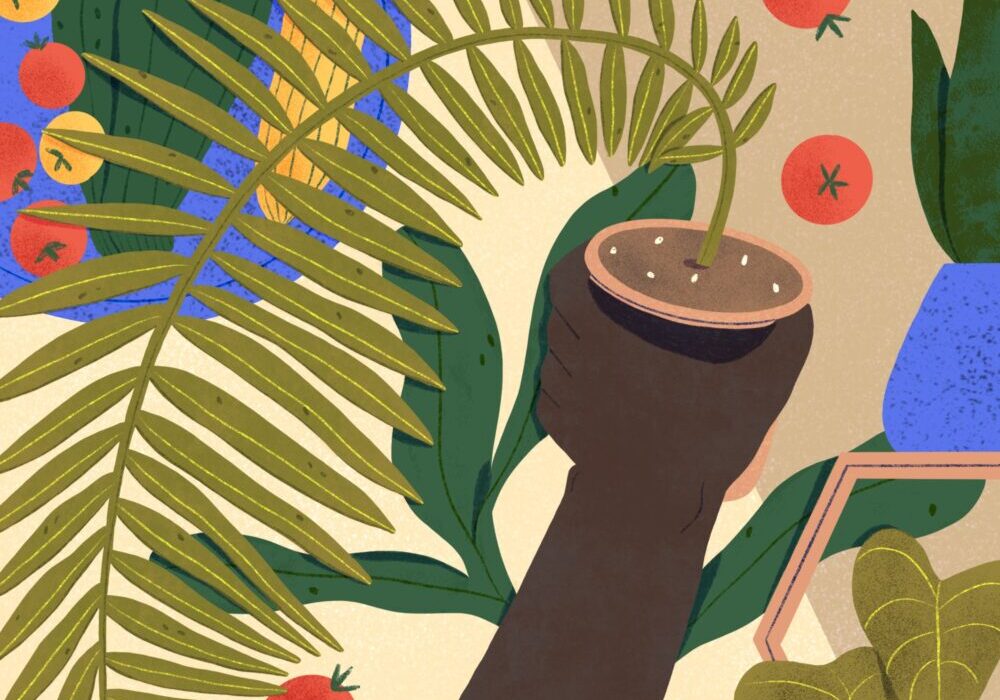The Black Students’ Network (BSN), the McGill African Students Society, and the Office of the Provost and Vice-Principal (Academic) presented the panel discussion “A Bite of History: A Conversation on Food, Ancestry, and Healing” on Feb. 17 as part of Black History Month. The panellists— Aisha Lesley Bentham, vegan chef and founder of Hue Foods; Jean-Philippe Vézina, founder and director of Les Jardins Lakou; and Maud Mazaniello-Chézol, a clinical dietitian and PhD candidate —came together to discuss the important role that food can play in helping racialized individuals connect to their culture and pursue physical and emotional healing.
A focal point of the conversation was how the panellists think about food in the context of their personal and professional lives. Bentham opened the discussion by commenting on the international roots of veganism, as well as her own practice.
“Veganism has been so whitewashed and boxed in as limiting, eating only salads and smoothies,” Bentham said. “There is a huge history of veganism all over the world before it came to North America and became narrowed. There can be a gentle process in a vegan lifestyle that I am trying to implement in my cooking.”
Bentham sees cooking and eating as a form of meditation with profound healing benefits that come with being present and listening to her body. For her, food has been a key pathway towards not only physical but emotional healing, helping her to connect with her Guyanese roots. She and Vézina agreed that using all senses while cooking and eating is crucial for people of African descent hoping to reconnect with their heritage.
“Farming is a healing practice,” Vézina said. “Farming and the connection to the land has been a way for me to learn more about my background as a Black person, but also touching the earth and the land has a powerful healing effect. The relationship with the land as people of African and Indigenous descent is the story of displacement and trauma. That is why it is so important to reconnect with the land.”
Les Jardins Lakou is a farming project that Vézina founded in 2019, focussed on growing indigenous African crops. As a farmer, he is interested in optimizing the nutrition and sustainability of the food he produces. He explained how industrialized agriculture in developed countries can deplete the soils of nutrients, resulting in less nutritious food. Mass-produced foods can lack micronutrients that would normally be found in produce. As such, artisanal farming uses practices that not only protect the land, but also produce more nutrient-rich foods.
“For people in developing countries, globalization has led farmers to change to industrial agriculture tailored for the export market instead of subsistence, so people start buying their food in supermarkets because they are no longer farming their own,” Vézina said.
Food exists at the crossroads of cultural, social, and biological needs, and when the foods that a community eats begin to change, so can its people. Mazaniello-Chézol’s research examines the potential health consequences of introducing a western diet to those living in developing countries, which include an increased prevalence of diseases like obesity and diabetes. But the people are not to blame for these problems––in countries where processed food is quickly becoming the cheapest and easiest option, individuals are often forced to make difficult health decisions when it comes to their diet.
“Food should not be a burden and people should not be made to feel guilty for not having access to healthy and sustainable food,” Mazaniello-Chézol said. “Food should always be something you like to work with because it is a social tool. Food is all about embracing culture and ancestry and getting your hands busy.”









